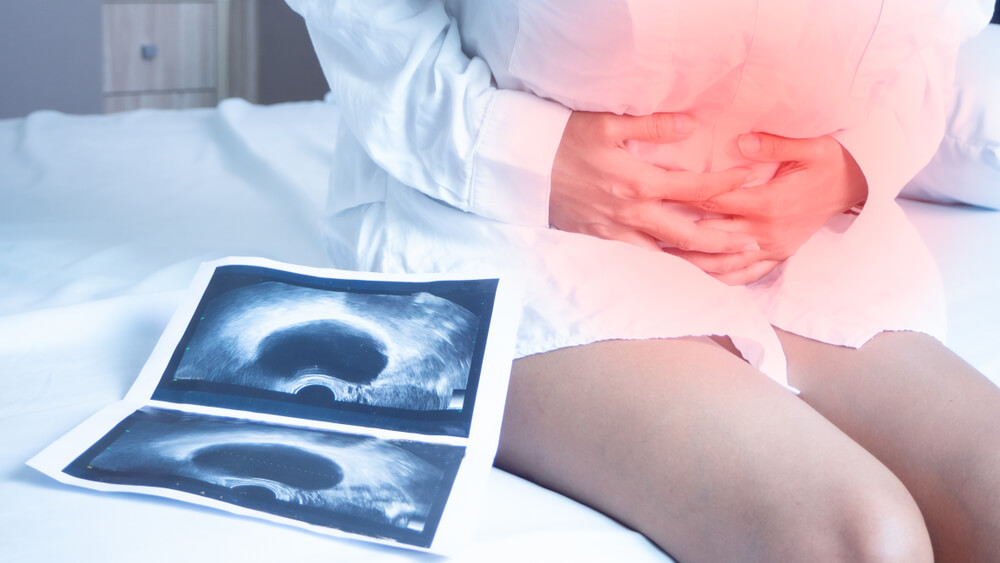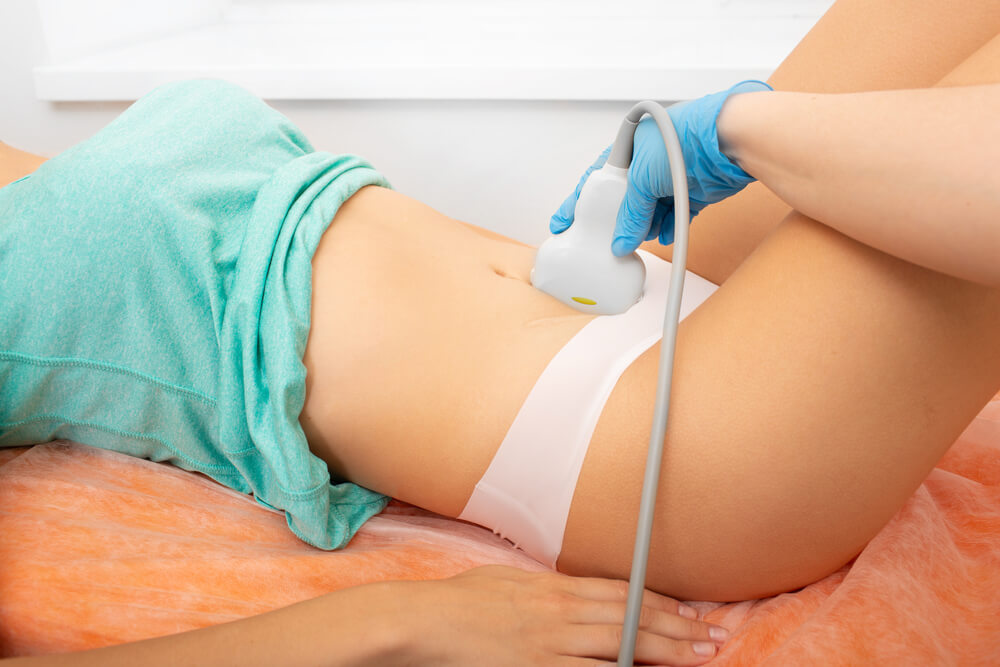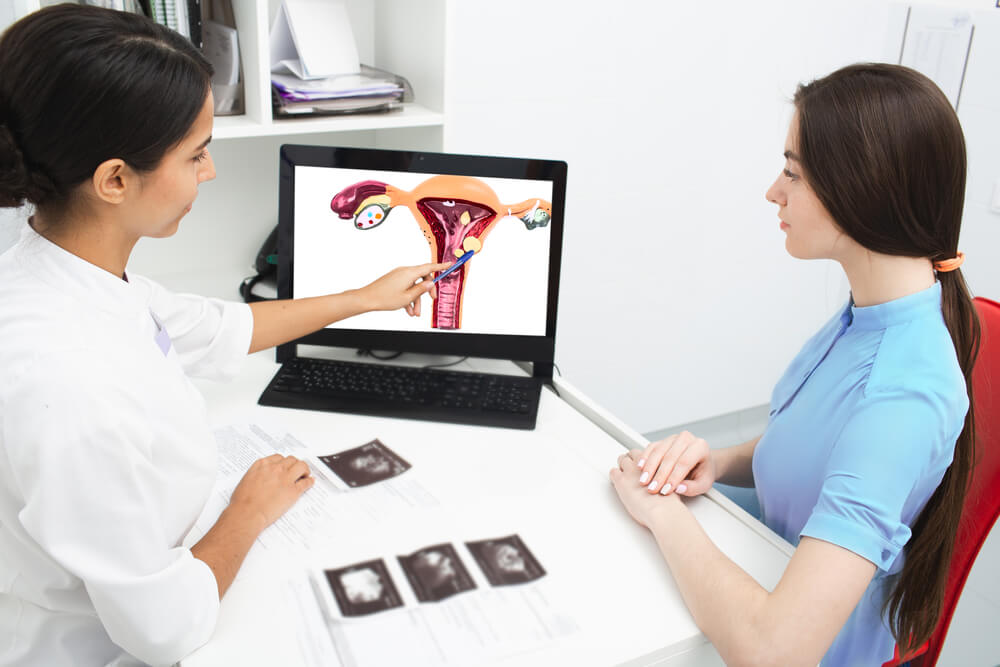There are possibilities you can still become pregnant, even if you have polyps in your uterus. While there is a connection between uterine polyps and infertility, the proper care and treatment could help you achieve pregnancy. Polyps are oval-shaped. Their size can be up to five centimeters in diameter, or the uterus polyps can be microscopic. The polyps attach to the endometrium by a stem. Women can have single or multiple polyps in their uterus.
Typically, polyps form in the uterine cavity. However, uterine polyps can develop in the endometrium or on the cervix, vagina, or fallopian tubes. Sometimes, if the polyp is large enough, it can affect pregnancy. Uterine polyps affect pregnancy by interfering with embryo implantation or sperm transportation. Their size can make it difficult for these processes to occur. If the polyp is small, it may not even affect pregnancy at all.
Nobody should overlook feminine health concerns, and at Carreras Medical Center, we work with our patients to discuss symptoms, come to the correct diagnosis, and discuss the best treatment path. After all, addressing female health concerns is our mission. We empower women to listen to their bodies and seek out the care they need.
The Difference Between a Polyp and Ovarian Cyst
An ovarian cyst grows on your ovaries, whereas uterine polyps typically form in your endometrium or cervix. An ovarian cyst is a small sac filled with fluid. An ovarian cyst can cause symptoms similar to a polyp. However, polys are typically associated with heavier bleeding compared to ovarian cysts. This is why if you are experiencing discomfort, you must visit a women’s healthcare professional, like us, to ensure you receive the correct and proper treatment for your condition.

What Causes Polyps in Uterus
The exact cause of polyps in the uterus is undetermined. However, research has revealed certain health factors can increase the chance of developing uterine polyps. The growth of the polyps is associated with hormonal production. Specifically, estrogen production or the lack thereof can cause the polyps to grow. The health factors that contribute to the chances of getting polyps in the uterus are as follows:
- Your Age
- Women over the age of 40 are more likely to develop uterine polyps because of diminishing hormone levels. Menopausal women are most likely to develop polyps in their uterus. Polyps can develop in women under 20 or post-menopausal women; however, it is very unlikely.
- If you have any pre-existing health conditions
- If you have High blood pressure, there is a higher likelihood that you will develop polyps in your uterus. A tilted uterus can also contribute.
- Your Weight
- Obesity is linked to polyps in the uterus. Watching your weight, regular exercise, and a balanced diet can help reduce your risk of developing polyps in the uterus.
- The drugs you take
- Tamoxifen is a drug prescribed for breast cancer treatment. Taking this drug is linked to polys in the uterine lining.
If you have a higher likelihood of developing polyps in the uterus based on health factors, making lifestyle changes may not be an option for you. Give us a call, and we can help determine where changes can be made. If lifestyle changes are not applicable to your condition, we will take a closer look into your options. We understand every case is different, and therefore we provide a variety of approaches to suit your needs better.
Symptoms of Polyps in Uterus
It is always important to pay attention to your body. Symptoms can be your body’s way of getting your attention. Always make a note of body changes and contact us. You should not have to live or cope with irregular symptoms. Finding treatment for polyps in the uterus lining may be the best option for you. The symptoms of polyps in the uterus are a telling sign that something is off with your health.
- Irregular or excessive Menstrual Cycles
- If you seem to be having your period much more frequently than your regular cycle, call us to discuss why. Maybe you have recently noticed that your flow is much heavier. Excessive or irregular menstrual cycles can indicate that you have polyps in your uterus.
- Vaginal Bleeding
- Bleeding or spotting between menstrual cycles can indicate polyps in the uterus lining. Vaginal bleeding, while it is not during the menstrual cycle, can be treated by seeing your healthcare professional.
- If you experience bleeding after sex, you may have polyps in your uterus. About 25% of women with uterine polys experience irregular bleeding. If you are experiencing bleeding or pain during or after intercourse, give us a call.
- Infertility
- Recurring miscarriages can be not only physically painful but emotionally. We want to help you get to the root of your infertility. Frequently, when women experience more than one miscarriage, there could be an underlying cause. If you have difficulty becoming pregnant or maintaining pregnancy, you may be suffering from polyps in your uterus. Give us a call for the best treatment process.
- Anemia
- Some women who have polyps in their uterus lining develop anemia due to excessive bleeding. There may be something deeper to the cause of your anemia; contact us for a professional assessment. If you have become anemic due to vaginal blood loss, this could be a sign of developing uterine polyps.
Uterus Ultrasound
A uterus ultrasound can diagnose uterine polyps. A transvaginal ultrasound is a painless procedure. We insert a wand about the diameter of a finger into your vagina to look inside your uterus. During a transvaginal uterus ultrasound, we can determine if you have a tilted uterus. A tilted uterus may increase the likelihood you develop polyps in your uterus. Sonohysterography or Hysteroscopy can also diagnose uterine polyps.

Removing Polyps in Uterus
If your uterine polyp symptoms are affecting your daily life, you should consider treatment. You may not need treatment if you do not experience any symptoms. There are options if you are considering removing polyps in your uterus, depending on the severity of your case.
- A Hysteroscopy can not only diagnose polyps in the uterus, but it can also treat them. During a hysteroscopy, your doctor will examine the inside of your uterus while the surgery takes place to remove the polyps. Curettage can occur during a hysteroscopy to determine if your polyps are cancerous. Your doctor will use a curette to remove polyps by scrapping.
- You can take certain medications that mitigate the symptoms of your polyps. Hormone regulating drugs is a temporary yet effective solution to your symptoms.
Conclusion
If you are experiencing any of the symptoms associated with polyps like heavy and irregular bleeding, infertility, or difficulty becoming pregnant, give us a call. At Carreras Medical Center, we will administer the proper tests to determine a diagnosis. After that, we work with our patients to determine the best treatment path. We can help you find a solution to your symptoms.



